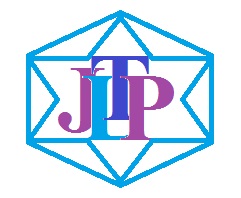Development of Self-Based Competency Test Application Based On Microsoft Excel To Improve Self-Efficacy of High School Students
DOI:
https://doi.org/10.24114/jltp.v1i1.12124Keywords:
competency test, curriculum, competencyAbstract
This study aims to analyze the computer-based Independent Competency Test (ICT) program that was developed to improve students' self-efficacy in physics subjects and to analyze the computer-based Independent Competency Test (ICT) program that was developed effectively used in increasing student self-efficacy used by participants students and teachers. This research uses the Research and Development (R&D) method which includes stages: (i) Identification of Potential and Problems; (ii) Analysis of Needs and Data Collection; (iii) System Design; (iv) System Implementation; (v) System Validation; (vi) System Revision; (vii) System Testing; and (viii) Final Systems. The subjects of this study were MAN 1 Medan students. The instrument used was testing aspects of functionality, usability, and student self-efficacy questionnaires. Based on the results of expert validation on the functionality test, it is obtained a percentage of 100% with very good criteria and has met the aspects of functionality. The results of expert validation on the usability test obtained a percentage of 93.15% with very high criteria and have met the usability aspect. Furthermore, the percentage obtained from the student questionnaire / self-efficacy questionnaire was 81% with very high criteria.References
Bandura, A. 1997. Self-Efficacy: Toward a Unifying Theory of Behavioral
Change. Psychological Review, 84, 191-215.
Centeno, E. G & Sompong N. 2012. Technology and Learning Styles in the GE Classroom: Towards Developing Blended Learning Systems for the 21st Century Learner. British Journal of Arts and Social Sciences, Volume 9. Nomor 2. Halaman: 240-256.
Cubillos, J. H. & Ilvento, T. 2013. The Impact of Study Abroad on Students™ SelfEfficacy Perceptions. Foreign Language Annals, 45: 494“511.
Ekici, G. et al. Biology Self Efficacy Beliefs of the Students Studying in the Department of Biology and Department of Biology Teaching. International Online Journal of Educational Sciences, 4 : 39-49.
Emzir. 2012. Metodologi Penelitian Pendidikan Kuantitatif dan Kualitatif. Jakarta: Rajawali Press.
Jimoh, R. G., Shittu, A.J.K & Kawu, Y. K. 2012. Students™ Perception of Computer Based Test (CBT) for Examining Undergraduate Chemistry Courses. Journal of Emerging Trends in Computing and Information Sciences, 3: 125-134.
Kang, M, Heo H & Jo, I.H. 2010. Developing an Educational Performance Indicator for New Millennium Learners. Developing an Educational Performance Indicator for New Millennium Learners. 43: 157“170.
Kolb, S.M. 2011. Self-Efficacy: A Necessary Social Skills Curricula Component. Journal of Emerging Trends in Educational Research and Policy Studies (JETERAPS) 2: 206-210.
Munir. 2012. Multimedia konsep dan aplikasi dalam pendidikan. Bandung: Alfabeta.
Sugiyono. 2015. Metode Penelitian dan Pengembangan: Research and Development/ R&D. Bandung: Alfabeta.
Sumintono, B., Wibowo, S.A., Mislan, N., & Tiawa, D.H. 2012. Penggunaan Teknologi Informasi dan Komunikasi Dalam Pengajaran: Survei Pada Guru-Guru Sains SMP di Indonesia. Jurnal Pengajaran MIPA, 17: 122-131.
Downloads
Published
Issue
Section
License
Copyright (c) 2019 Journal of Learning and Technology in Physics

This work is licensed under a Creative Commons Attribution 4.0 International License.



